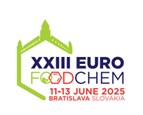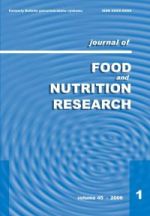Scientific journal
Journal of Food and Nutrition Research
Summary No. 3 / 2009
BRTKOVÁ, A. – BUJDÁKOVÁ, H.
Antibiotic resistance in Enterococcus isolates from poultry swabs in Slovakia
Journal of Food and Nutrition Research, 48, 2009, No. 3, s. 121-128
Andrea Brtková, State Veterinary and Food Institute, Janoškova 1611/58, SK – 026 01 Dolný Kubín, Slovakia. E-mail: brtkova@svpudk.sk
Summary: The role of susceptibility or resistance to antimicrobial agents in enterococci is important for the food industry. Eighty two isolates (18 Enterococcus faecium, 26 E. faecalis, 35 E. casseliflavus and 3 E. gallinarum ) were taken from cloacal swabs of poultry and from the water intended for livestock breeding during the years 2004–2006. The isolates were evaluated for susceptibility to antimicrobial agents: ampicillin, gentamicin, streptomycin, erythromycin, tetracycline, and vancomycin determined by the disk diffusion test and E-test. All isolates were found to be susceptible to ampicillin and vancomycin. Resistance rates to gentamicin, streptomycin, tetracycline and erythromycin were 1%, 4%, 40% and 4%, respectively. One isolate of E. faecium was resistant to gentamicin and erythromycin. Two and six isolates of this species were resistant to streptomycin and tetracycline, respectively. One isolate of E. faecalis was resistant to streptomycin and erythromycin. High level resistance to tetracycline was observed in E. faecalis (46%) and E. casseliflavus (37%) isolates. One isolate of E. casseliflavus was resistant to erythromycin. E. gallinarum isolates showed a low level of resistance to gentamicin, streptomycin, tetracycline and erythromycin (0–2%). This research suggests that enterococci of animal and environmental origin may play a potential role as a reservoir of resistance to antimicrobial agents.
Keywords: Enterococcus; probiotics; resistance; vancomycin; gentamicin
Download:
(pdf, 141.37 Kb, 3882x)










